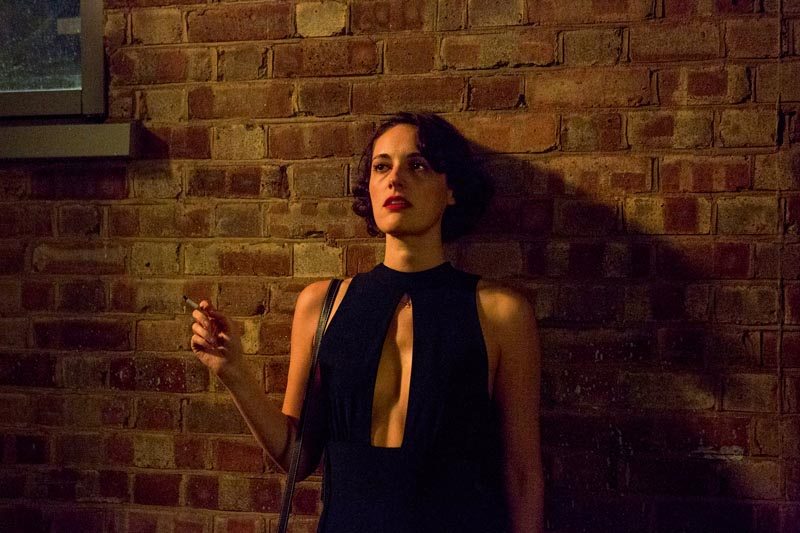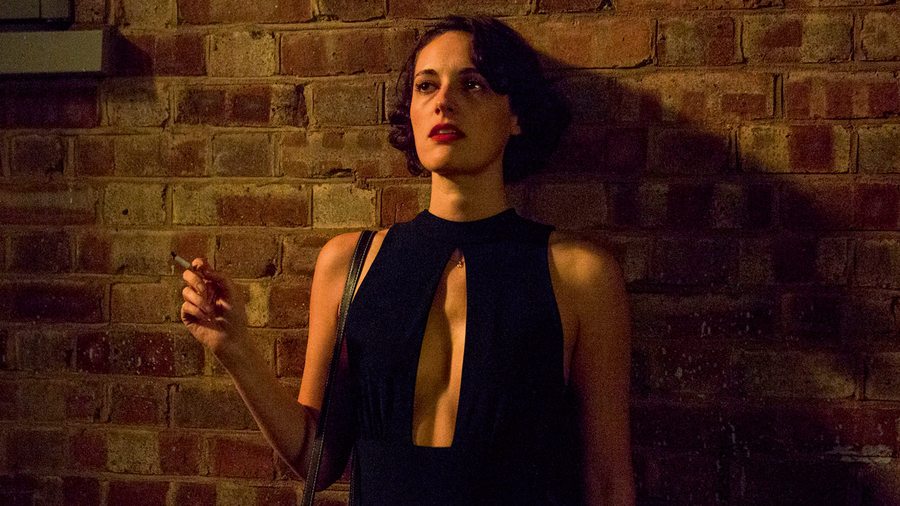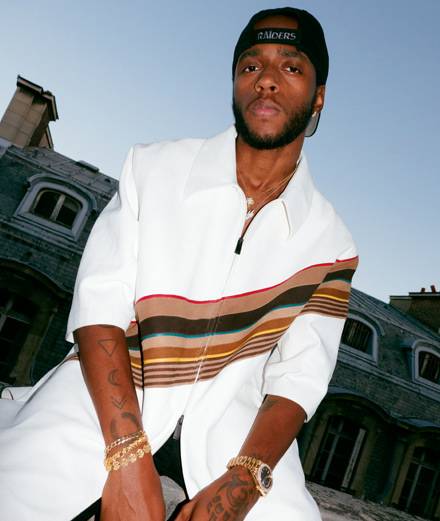

Not all of today’s stars dazzle with their talent, but there are, thank goodness, a few astounding exceptions. Phoebe Waller-Bridge is one of them, a model example of someone who has made the world fall in love with her through the sheer strength of her art. People first began to talk about her three years ago, when Britain’s Channel 4 began broadcasting a highly sexed, acid generational comedy, Crashing, which was a sort of rude homage to Friends. But it was a few months later, when Fleabag began showing on a rival channel, that things began to hot up, slowly at first but soon surely and irresistibly.
Today the tall 30-something brunette has become one of Britain and Hollywood’s most sought-after actresses and screenwriters, the dizzying, disconcerting personality behind two series that have been watched the world over – Fleabag and Killing Eve – as well as heaps of stylish projects, including a feisty android character role in the last Star Wars film. For Waller-Bridge’s is an approach that is both faithful to and radically different from the traditions of British humour: faithful because she bases her comedy situations in the shame and panic that arise out of them; different because her viewpoint is that of a woman who shows the world her demons, analysing her anxiety with raw honesty and inventing a whole other world through a series of perfectly put rejoinders. Like this example: “It’s easier to manage being single than being in a relationship.”
In the mid aughts, Waller-Bridge was more inclined to believe in her unlucky star. Following a childhood spent acting with brio in school plays, and after graduating from RADA in London, she found herself up against a wall, unemployed for several years, broken by an acting school that had a reputation for building strong careers. “I went to Rada thinking I was quite a good actor and came out thinking I was appalling,” she afterwards explained. It was then that she met Vicky Jones, who would become her creative partner (the pair still work together) and would help her unleash her true voice. The duo started by founding a theatre company in London, DryWrite, which showcased young authors. Finding few roles that suited her, and seeing that the sort of dramas she wanted to watch were not being written by anyone else, Waller-Bridge began frenetically writing a series of short plays, which included a ten-page script that would become the first version of Fleabag.
Bande-annonce “Killing Eve”
One evening, having plucked up Dutch courage, Jones took her to the Soho Theatre where she went up to the then artistic director to tell him that her friend had enormous talent which was being wasted by being hidden under a bushel! A few months later, WallerBridge showed some of her work in a one-woman show at the Edinburgh Festival Fringe, which introduced to the world her caustic writing in the form of a story about a young woman whose parents have nicknamed her “fleabag.” Addressing the audience directly, she recounted an existence founded on the renunciation of love – she dives into sexuality quite outrageously – as well as her ongoing fights with her sister and father. Except that little by little we discover the psychological origins of her problems, which are linked to her best friend’s death for which she feels responsible. First broadcast as a series in 2016, Fleabag introduced her funny, heart-breaking creation to a wider audience, none of whom have forgotten the shock they felt on first discovering her.
This spring, Waller-Bridge released the second series of her heroine’s adventures, in which her fictional double delves ever deeper into the links that bind her to others. What’s the point in looking for love where it’s easy to find? Why bother looking for love at all, moreover, since anxiety and angst will always win the day? Her stimulating pessimism serves writing that is ever more brilliant, such as the encounter with a young, seductive priest who confronts the main character with her desires and lack of love.
Something comes out of the images and dialogues in the series, a unique tone, a soul that expresses itself with idiosyncratic frankness. Where does WallerBridge’s writing spring from? Which deep wells gave us Killing Eve, a series about an extraordinary feminine duo in which a confused detective inspector hunts a psychopathic hit woman? After listing her favourite narrative territories – “I write from the point of view of what I’d like to watch. I’m always satisfying my own appetite. So I guess that means transgressive women, friendships, pain. I love pain” – Waller-Bridge recently explained that one word could sum up the origin of it all: “Rage. Good things can come out of rage. It’s galvanizing. A director once said to me, ‘You have the gift of rage,’ and it really stayed with me. I always wanted to hit the edge of the character. Once you know what makes someone angry, you can tell a lot about that person.”
Bande-annonce “Fleabag”
In a certain way, but only in a certain way, Waller-Bridge is one of the free, inspired voices finding an audience today in a world where feminism is no longer, thank goodness, a dirty word. She might make you think of Lena Dunham, Jill Soloway or Issa Rae, even if no comparison really stands up when it comes to describing her talent, which springs from her inner world. Waller-Bridge has decided to imagine a fictional universe in which she’d want to live, even if the universe in question is sometimes difficult to like and constructs an image of her that is as fascinating as it is troubling.
Quite logically, Waller-Bridge owns an approach that is anything but “seemly” when it comes to expressing her desires and her idiosyncratic fictional universe. Moreover nobody in Fleabag or Killing Eve – least of all the women – is content with being respectable. “Being proper and sweet and nice and pleasing is a fucking nightmare. It’s exhausting. As women, we get the message about how to be a good girl – how to be a good, pretty girl – from such an early age. Then, at the same time, we’re told that well-behaved girls won’t change the world or ever make a splash. So it’s sort of like, well, what the fuck am I supposed to be? I’m supposed to be a really polite revolutionary?”
The answer is of course contained in the question. Waller-Bridge will never be a polite young woman (on screen at any rate) and will boost her credentials as a revolutionary with every passing day. For some years now she’s been involved with a pressure group that aims to improve the situation of actresses in the British film and TV industry, but most of all she puts enormous effort into constructing characters like nothing we’ve ever seen before, free, anxious and moving. Her goal? Continuing to create comedy, but a form of comedy whose drive is always rooted in the profound. After meeting psychologists specialized in psychopaths during the writing of Killing Eve, she came to the following conclusion: “The thing that people say about them is they’re just so funny, so you can’t help but love them. So, even though you know they have done these terrible crimes and these terrible things, if someone surprises you, makes you laugh, disarms you, they can do anything. It’s why I love comedy so much and why I think it’s such a powerful, powerful tool.”
Fleabag season 2, available on Amazon Prime. Killing Eve season 2, available on Canal Plus séries.




